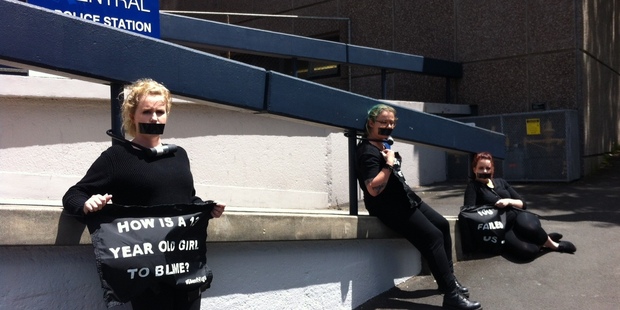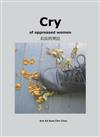Roast Busters case: 'Where was the respect?' - police
6:50 PM Wednesday Oct 29, 2014

Charges will not be laid against the alleged offenders involved in the Roast Busters scandal.
Police have released the findings in the Operation Clover investigation into eight incidents, involving seven victims who made formal complaints, and five suspects.
A further 25 girls declined to make formal statements, but were believed to have been victims of sexual offending.
Detective Inspector Karyn Malthus, who headed Operation Clover, said there was not enough evidence to prosecute.
"Other factors included the wishes of individual victims, the admissible evidence available, the nature of the offence and the age of the parties at the time of the offending."
Victims of the Roast Busters scandal were told yesterday and today that there would be no charges laid.
Ms Malthus told media today that she was disappointed police weren't able to firm up a prosecution.
"The reaction amongst the victims was varied," she said.
Acting Deputy Commissioner Grant Nicholls said the findings of Operation Clover posed one serious question.
"Where was the respect for these girls?"
He said the report showed the influence of social media in the lives of young people.
"It's a changed world."
Ms Malthus said while the "group mentality" of the Roast Busters case made it different from other sexual assault cases, many others like this also ended without prosecution.
Sexual offending 'grossly under-reported'
Ms Malthus said search warrants were executed throughout the operation to find evidence but "weren't overly successful".
The number of girls who refused to make a formal statement wasn't unusual, she said.
"These are common challenges we face.
"We respect the decision of the girls involved and we support them in those decisions."
Mr Nicholls said all sexual offending was "grossly under-reported".
Ms Malthus said she accepted that people would have expected a prosecution out of the Operation.
"We are not in the business of putting these young people in to a court process when we can't be sure of [a prosecution]."
She said it was possible that if any of the 25 girls identified by police decided to make a formal statement an investigation would be re-launched.
She said it was surprising to find one of the persons of interest was aged around 22 at the time of the incident and interacting with young teenagers.
"That is absolutely concerning."
The overview of the investigation report, written by Ms Malthus, has been released to media today.
Detective Superintendent Andy Lovelock said this was released "to provide transparency and assist the public in understanding the complexities involved".
The report said an extensive analysis of social media identified 110 girls that police canvassed in relation to the case. Five of those girls provided formal statements.
In total, 35 males were considered by police in relation to eight incidents involving seven victims, including two girls who complained received prior to the launch of Operation Clover.
The main offences investigated were rape and unlawful sexual connection, and sexual conduct with a young person under 16.
"Throughout the investigation the priority was for the welfare and privacy of the girls involved, and ensuring that all support options were made available to them," Ms Malthus said.
"We have emphasised to both the victims and suspects that there is no time limit for reporting sexual offending."
Commissioner Mike Bush said in a statement that he was confident police conducted a thorough, and professional enquiry in to the case.
He described the case as "challenging and complex".
"I accept the decision not to lay charges will prompt a range of reactions.
"The behavior of this group caused a significant public response and there was a strong expectation in the minds of many that a prosecution would result.
He said he would await the findings of an Independent Police Conduct Authority into the initial handling of the investigation.
"We know that sexual assault in all age groups is under-reported. I am committed to ensuring that victims of all ages have trust in police and they can be assured their complaint will be thoroughly and professionally investigated."
Child Youth and Family worked with police during Operation Clover to ensure any young woman under 17 and their families had access to therapeutic or other support.
The release of the findings of Operation Clover comes after the IPCA found a systemic breakdown of communication within the police led to inaccurate information being provided to the public amid the Roast Busters scandal.
The IPCA report was released on May 22, and looked into the adequacy of the police investigation and the handling of any complaints or reports to police from the public between 2011 and October 2013. It also looked at the information police gave to media.
The Roast Busters scandal caused widespread outrage after it was revealed young men were posting videos of themselves online bragging about sexual activities with drunk, underage girls -- some as young as 13.
Detective Inspector Bruce Scott of Waitemata district said in November 2013 that even though police were aware of the group, there was nothing they could do until a girl was "brave enough" to make a formal complaint.
Days later it emerged a young teen had complained to police two years before, but she was not taken seriously.
The 15-year-old who went to police about the Roast Busters in 2011, said she would lay a new formal complaint after the scandal broke. She also criticised police for their line of questioning, asking her what she was wearing at the time of the assault, when she was aged just 13.
'Poor understanding of consent'
Ms Malthus said the findings of Operation Clover highlighted significant issues for New Zealand related to alcohol and consent.
"The prevalence of alcohol in the lives of the teenagers interviewed, both male and female, was a concern to the Operation Clover team," she said.
"There was also a poor understanding amongst the males and females spoken to as to what 'consent' was.
"In addition, there was an equally poor understanding by these teenagers as to the role alcohol consumption played in potentially negating the ability to consent."
The report said that through interviews with the teenagers police discovered that "shocking" levels of inebriation were described.
Drinking games that involved serious sexual acts were also referenced at these often unsupervised parties.
Ms Malthus said sexual education programmes could be enhanced to emphasise the issues of consent when alcohol and drugs were involved.
A report conducted by Auckland service provider Help -- Support for Sexual Abuse Survivors was referenced by Ms Malthus in her findings of the Operation.
Ms Malthus said in the report that the barriers young women have to disclosing to people in authority, as outlined in the work done by Help, were not overcome by police.
She said this would require further consideration by all agencies involved.
Lessons to learn - Minister
Police Minister Michael Woodhouse says he understands the Roast Busters decision would disappoint some people, but he believes there are things to learn from the case and hopes it would not deter women from coming forward in future.
The decision was made by police alone without his involvement, Mr Woodhouse said. He had sought assurances from Police Commissioner Mike Bush that the investigation had been thorough.
"This has been a very complex case and I have been assured by Commissioner Bush that a high priority has been placed on it and resources of both police and a number of other agencies have been committed to it.
"The priority always has been for the welfare of the young women and their families."
Asked if he was disappointed by the decision, he said: "It's not for me to be disappointed. What I want to be sure about was that a thorough investigation, considering all of the information available to police, has been undertaken, and I am satisfied that's the case."
He believed police had worked hard to ensure the women involved were supported, had the information they needed and were "protected" during the process.
"I'm satisfied they've done a very good job with that."
Asked if any further inquiries were warranted, he said he expected the second part of the Independent Police Conduct Authority investigation to be released in due course.
After police had digested the outcome of the investigation, they could consider whether anything further was required.
'Our current system is not working'
Green Party MP Jan Logie said the case showed there was an urgent need to overhaul the way sexual violence cases were dealt with.
"Many people will be disappointed that there is no justice for the victims in this case. The current system is not working. Too many victims are going without justice because of a systemic failure of our laws to provide for victims of sexual violence."
She said former Justice Minister Judith Collins had halted Law Commission work on processes for sexual violence cases and National had not gone ahead with a proposal for victims' advisers.
"It took two years and media attention for the police to even look at this case with any seriousness. This highlights a culture in which victims are not taken seriously."
Justice Minister Amy Adams said she had not read the report yet but anything to be learned from it would be taken seriously and feed in to ongoing work on how sexual assault victims were treated within the system and how it responded to them.
"Clearly one of the issues the system has to be set up well to deal with is to encourage victims to come forward and to feel supported through the system when they do.
"That's not a new issue. It's an issue we continue to work with. Partly you have to take into account the very fragile nature of the victims and the tremendous trauma they've been through.
"That puts them into a more vulnerable state in terms of their willingness to come through and how they will be affected by any perceived negative response or disbelief, if that is what they encounter."
She said there was a balancing act between protecting victims and ensuring the evidence was assessed fully so that only the guilty were convicted.
Calls for such cases to be handled under a non-adversarial system would not necessarily have meant a different result.
"In terms of the current report, the initial media reports suggests the issue was one of the evidence the police had to prosecute.
"Fundamentally you have to have a system where we can be assured the evidence is there to support a prosecution ... There would always have to be an standard of proof, an evidential burden that had to be met, and changing from one system to another isn't necessarily going to address the challenges met in this case."
Labour's acting deputy leader Annette King said she was concerned the mishandling of the case and outcome would put victims off reporting sexual crimes.
"This case has been mishandled from the start. That police have now decided -- after three years -- that they cannot prosecute anyone because of a lack of evidence must be hugely disappointing for the victims."
She said police and court processes already put some victims off reporting sexual abuse, and lessons had to be learned.
"New Zealanders' expectations would be that the handling of these cases will improve, not go backwards."
By the numbers
110 girls canvassed
66 girls eliminated following canvassing
44 girls re-approached for clarification
14 of the 44 girls eliminated upon re-approach
5 of the 44 girls made formal complaints
25 girls declined to provide formal statements, however are believed to have been victims.
2 girls made complaints prior to Operation Clover and re-engaged with police
7 girls in total made formal complaints
Persons of interest:
66 girls eliminated following canvassing
44 girls re-approached for clarification
14 of the 44 girls eliminated upon re-approach
5 of the 44 girls made formal complaints
25 girls declined to provide formal statements, however are believed to have been victims.
2 girls made complaints prior to Operation Clover and re-engaged with police
7 girls in total made formal complaints
Persons of interest:
30 males identified as persons of interest
22 were interviewed
4 were unable to be identified
3 refused to be interviewed
1 was overseas
2 were under 17 at time of interview
28 were over 17
25 - the age of oldest person of interest
Suspects:
22 were interviewed
4 were unable to be identified
3 refused to be interviewed
1 was overseas
2 were under 17 at time of interview
28 were over 17
25 - the age of oldest person of interest
Suspects:
5 males named as suspects
3 agreed to interview
2 declined interview
4 of the suspects were 18 years old
1 of the suspects was 20 years old
3 agreed to interview
2 declined interview
4 of the suspects were 18 years old
1 of the suspects was 20 years old
ROAST BUSTERS TIMELINE
* 2011: 15-year-old victim lays complaint with police about the group's alleged activities.
* 2011: Green Bay High School counsellor claims she went to senior management to raise concerns about alleged Roast Buster Beraiah Hales.
* November 21, 2013: 111,000-strong petition demanding stronger action over the scandal delivered to Parliament.
* April 2012: Green Bay High School receive allegations about Hales.
* May 2012: Hales leaves Green Bay High School.
* November 3, 2013: Videos emerge of a group of boys calling themselves the Roast Busters showing them laughing and bragging about having sex with drunk and underage girls.
Detective Inspector Bruce Scott said even though police were aware of the group, there was nothing they could do until a girl was "brave enough" to make a formal complaint.
* November 5, 2013: Superintendent Bill Searle said none of the girls from the original inquiry wanted to make a formal complaint.
* November 6, 2013: A 15-year-old girl comes forward to say she laid a formal complaint with police in 2011 -- when she was 13. Police later confirm this is true.
* November 7, 2013: After calls for action, Police Minister Anne Tolley announces she has asked the Independent Police Conduct Authority to investigate.
* November 12, 2013: Police child sexual abuse specialist Detective Inspector Karyn Malthus appointed to head the newly named Operation Clover.
* November 16, 2013: Nationwide protests take place, with hundreds calling for an end to the country's 'rape culture'.
* November 17, 2013: A girl who says she made a complaint to police two years ago reveals she has made a second complaint after the Roast Busters scandal.
* November 21, 2013: A petition is presented to MPs outside Parliament with more than 110,000 signatures calling for more action for the alleged victims of the Roast Busters.
* December 12, 2013: Then Police Commissioner Peter Marshall grilled by a select committee in Wellington about the police response to the case.
* October 29, 2014: Police release the findings of Operation Clover and announce no prosecutions will be made.
- additional reporting Claire Trevett
- NZME.
Read more by Sophie Ryan Email Sophie Ryan









